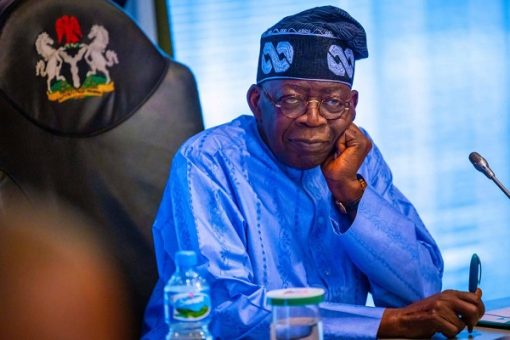The National Social Investment Programme (NSIP) and the National Poverty Reduction and Growth Strategy are to be institutionalized as permanent features of Nigeria’s economic structure, says President Bola Ahmed Tinubu.
Tinubu explained that the move was a part of his administration’s broader efforts to reduce poverty and enhance the living standards of most Nigerians.
“We must do more to institutionalize these safety nets and make them a permanent feature of our economic architecture,” he said at the 30th Nigerian Economic Summit (NES30) in Abuja yesterday.
The President was represented at the event tagged ‘Collaborative Action for Growth, Competitiveness, and Stability’ by Vice-President Kashim Shettima.
The President, who said the challenges facing the country were surmountable, noted that economic indicators suggest that his administration’s recent reforms, including removal of petrol subsidies and the unification of exchange rates, were already yielding results.
Tinubu called for stronger cooperation between government agencies, the private sector, and international partners to boost economic growth, enhance competitiveness, and maintain stability.
He emphasised the need for economic diversification and highlighted sectors such as Agriculture, manufacturing, and digital economy as key to achieving inclusive growth.
His words: “Like many other nations, Nigeria has experienced significant economic problems over the past few years. The challenges have been global as well as domestic
“Nigeria’s growth trajectory has been volatile, heavily dependent on oil revenues, and unable to create enough jobs to keep pace with our rapidly growing population.
“As a nation, we must prioritise economic diversification. We need to harness our potential so that we can transform our anticipated demographic bulge into demographic dividends, not the demographic disaster that will consume all of us.
He also reaffirmed his administration’s commitment to infrastructural projects like roads, railways, and power plants to improve connectivity and productivity.
“We are harmonising regulatory processes to reduce the bureaucratic hurdles that have long stifled entrepreneurship and innovation,” the President added.
On economic inclusivity, Tinubu stressed that Nigeria’s competitiveness should not only be measured by global indices but by the extent to which it provides opportunities for all citizens, including small and medium-sized enterprises (SMEs).
He added: “With the right policies, the right partnerships, and the right level of commitment, Nigeria can emerge stronger, more competitive, and more resilient than ever before.” he said.
“Removing fuel subsidies, unification of exchange rates, and debt management strategies are all part of a broader effort to restore economic balance and ensure long-term stability.
It is also important to note that stability is not just about managing crises as they arise.
“It is about building a resilient economy that can withstand shocks, ensuring the stability of the macroeconomic indicators, and sustaining a growth trajectory.
“I want to emphasise that the challenges before us are insignificant and manageable and can be overcome. With the right policies, the right partnerships, and the right level of commitment, Nigeria can emerge stronger, more competitive, and more resilient.”
Budget and Economic Planning Minister Atiku Bagudu, echoed the President’s sentiments and emphasised the success of recent reforms.
Bagudu noted that Nigeria’s Gross Domestic Product (GDP) growth increased from 2.98 percent in the first quarter of 2024 to 3.19 percent in the second quarter.
He added that inflation was trending downward while external reserves were improving.
Urging Nigerians to support the government’s efforts, the minister said that “there is indeed light at the end of the tunnel.”
World Bank Senior Vice-President and Chief Economist, Indermit Gill, noted Nigeria’s significance in Africa’s economic development.
“Given the size and significance, Africa goes where Nigeria goes. Africa rising simply translates to Nigeria rising,” Gill stated.
He also highlighted the need to sustain key reforms, such as the unification of multiple exchange rates and the removal of petrol subsidy to maintain economic stability.
NESG Chairman Niyi Yusuf called for more decisive reforms to strengthen the economy.
“Since COVID-19, our economy has shown resilience but remains fragile. We must take additional steps to ensure that gains in FDI(Foreign Direct Investment) and foreign exchange markets are not reversed,” Yusuf said.

